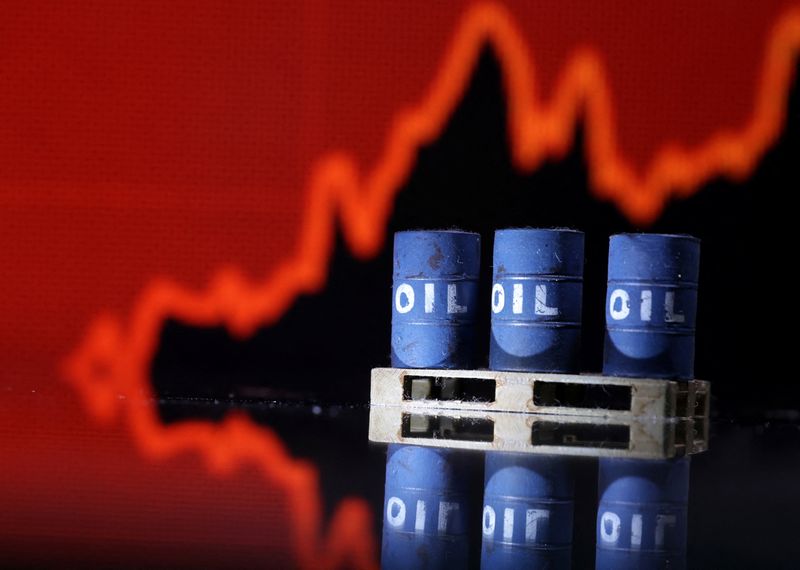Written by Colleen Howe and Emily Chow
SINGAPORE (Reuters) – Oil prices fell on Monday as market participants refrained from risk premiums following Iran's weekend attack on Israel, after the Israeli government said the damage was limited.
As of 0630 GMT, Brent futures for June delivery were down 50 cents, or 0.5%, at $89.95 a barrel, while West Texas Intermediate (WTI) for May delivery was down 50 cents, or 0.5%, at $89.95 a barrel. ) futures fell 52 cents, or 0.6%, to $85.14 a barrel.
The Iranian attack involved more than 300 missiles and drones and was the first attack by another country on Israel in more than 30 years, adding to a broader regional conflict affecting oil shipments through the Middle East. Concerns are growing.
However, the attack, which Iran claimed was in retaliation for an airstrike on the Damascus consulate, caused only minor damage as the missile was shot down by Israel's Iron Dome defense system. Israel, which is at war with Iran-backed Hamas militants in the Gaza Strip, has neither confirmed nor denied the attack on the consulate.
Warren Patterson, head of product strategy at ING, said: “The attack was largely priced in days in advance, and the fact that the damage was limited and there was no loss of life suggests that Israel's response will be more cautious.'' This means that there is a possibility that
“But obviously there is still a lot of uncertainty and it all depends on how Israel responds.”
Iran currently produces more than 3 million barrels per day (bpd) of crude oil as a major producer within the Organization of the Petroleum Exporting Countries (OPEC), so supply risks include tightening oil sanctions and Israel's response. This includes the possibility that Iranian energy will be targeted. ING said in a separate note to clients on Monday.
However, in the event of significant supply losses, the US could release more crude from the Strategic Oil Reserve, while OPEC has more than 5 million barrels per day of excess production capacity, the report said. Ta.
“One would imagine that if prices rise significantly on the back of supply losses, the group will try to put some of this spare capacity back into the market. ING would not want it to rise too much,'' ING said in a note.
Oil indexes rose on Friday in anticipation of Iranian retaliatory strikes, hitting their highest since October.
Analysts were widely expecting at least a short-term price increase this morning, but the more significant long-term price impacts of the price hike include restrictions on shipping in the Strait of Hormuz near Iran, which could be critical to supply. He expressed the view that a major disruption would be necessary. .
So far, the conflict between Israel and Hamas has had little visible impact on oil supplies.
Analysts at ANZ Research said: “The attack on the Iranian embassy in Syria and Iran's retaliation are increasing tensions in the Middle East. We cannot expect an immediate response.” With notes.
“Israel's response will determine whether the escalation ends or continues. The conflict could still be contained to Israel, Iran and its proxies, and there is also the possibility of US involvement. It only affects in extreme cases.”
Analysts at Citi Research said tensions persisted into the second quarter of this year, with oil prices hovering around $85 to $90 a barrel. As the market has been mostly balanced between supply and demand throughout the first quarter, prices could fall sharply to the high $70s or low $80s per barrel once tensions ease.
“What is not priced into the current market, in our view, is the possibility of a continuation of direct conflict between Iran and Israel, with oil prices exceeding $100 per barrel depending on the nature of the situation. We estimate that a trade is likely,” Citi analysts said in a note.
(Reporting by Colleen Howe in Beijing and Emily Chow and Florence Tan in Singapore; Editing by Christopher Cushing, Sri Navaratnam and Tom Hogue)


